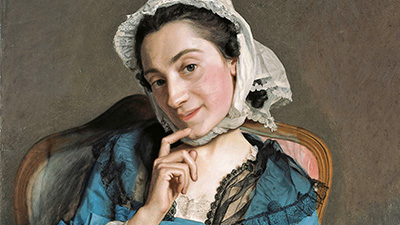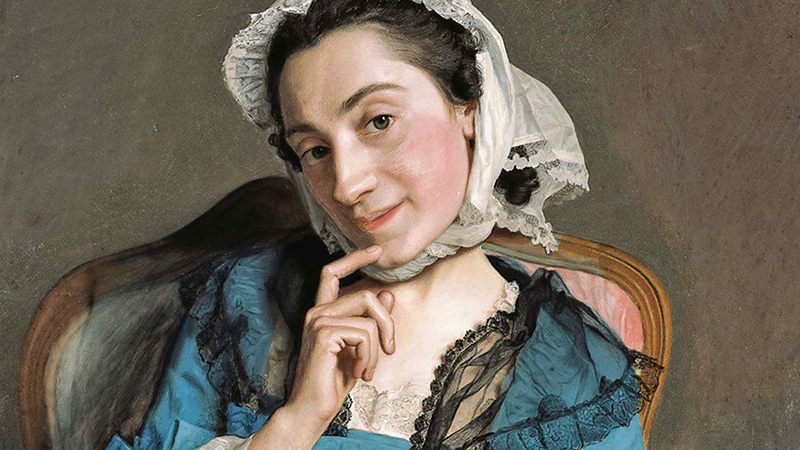The Enlightenment
Teacher Resources
Driving Question: To what extent did the Enlightenment change society?
During the eighteenth century, the Enlightenment generated new ideas about the natural and political worlds. The reverberations of these new ideas echoed across the world, but not everyone felt the vibrations of this philosophical revolution.
Learning Objectives:
- Understand the extent to which the Enlightenment influenced political and cultural change.
- Use sourcing skills to analyze how the Enlightenment helped produce new ideas about science.
- Use the historical thinking practice of claim testing to identify, assess, and use authority when evaluating and making claims.
Vocab Terms:
- abolition
- aristocrat
- citizenship
- constitution
- monarchy
- philosophe
- radical
Opener: The Enlightenment
To teach this lesson step, refer to page 2 of the Lesson 2.2 Teaching Guide.
Would you ask your dentist for advice on fixing a hole in your jeans? Probably not. We trust different authorities in different situations.
Revolutionary Words
To teach this lesson step, refer to page 3 of the Lesson 2.2 Teaching Guide.
Check out page 8 of our Historical Thinking Skills Guide for an explanation of sourcing.
Our online teacher community is a great resource for suggestions on how to teach sourcing in your classroom.
The Enlightenment spread new ideas about religion, politics, and science. In this sourcing activity, you’ll examine some debates that emerged around the science of inoculation.
Dare to Know
To teach this lesson step, refer to page 7 of the Lesson 2.2 Teaching Guide.
Check out our Video Guide for ideas on engaging students in active learning with video.
Thinking about how to up student engagement in this lesson? Check out this blog post on TikTok claim testers—a sure win!
The thinkers of the Enlightenment questioned old sources of authority. In this article and video, you’ll see the results of their efforts, and then you’ll dive into the authority claim tester yourself.
-
Guiding Questions
-
Before you read
Preview the questions below, and then skim the article. Be sure to look at the section headings and any images.
While you read
Look for answers to these questions:
- What was the most revolutionary political idea in the Enlightenment?
- In what ways was the Enlightenment also an economic, ethical, and religious phenomenon?
- How quickly did most Enlightenment thinkers want change to happen?
- Some people pushed for more-revolutionary results from the Enlightenment. Who were they?
After you read
Respond to these questions: Do you think the Enlightenment should be called revolutionary? Why or why not?
-
Guiding Questions
-
Before you watch
Preview the questions below, and then review the transcript.
While you watch
Look for answers to these questions:
- How was Paris in 1750 a “contradiction”?
- How was the Diderot’s Encyclopedia also representative of this contradiction?
- What political and national revolutions does the video connect to the philosophers and their encyclopedia?
- Why did some “enlightened monarchs” and aristocrats support this work?
- Why was Diderot’s Encyclopedia so controversial?
After you watch
Respond to these questions: Do you think the Encyclopedia was a revolutionary document? Why or why not?
Causation and the Camel
To teach this lesson step, refer to page 10 of the Lesson 2.2 Teaching Guide.
Check out page 4 of our Historical Thinking Skills Guide for an explanation of causation.
Our online teacher community is a great resource for suggestions on how to teach causation in your classroom.
Alphonse the Camel had a difficult life, but what caused his demise? Let’s explore this poor camel’s end and get to the bottom of this mystery!
Closer: The Enlightenment
To teach this lesson step, refer to page 11 of the Lesson 2.2 Teaching Guide.
Want tips for before-, during-, and after-reading scaffolds? Find reading strategies and more ways to support all learners in our Differentiation Guide.
The ideas of the Enlightenment are often best analyzed through the words of those who shaped it. This closer activity provides original quotes and their modern “translations.”
Dare to Know
To teach this lesson step, refer to page 11 of the Lesson 2.2 Teaching Guide.
Enlightenment thinkers sought to transform their world and how people thought about it. Use the article, source collection, and activity to examine their motives and impacts.
-
Guiding Questions
-
Before you read
Preview the questions below, and then skim the article. Be sure to look at the section headings and any images.
While you read
Look for answers to these questions:
- What evidence do we have that scientific observation and experimentation occurred before the sixteenth-century Scientific Revolution?
- How did new technologies contribute to the expansion of scientific knowledge?
- How did Islamic scholars contribute to the discoveries of the Scientific Revolution?
- In what ways did women contribute to the Scientific Revolution and how did women’s involvement in this revolution change over time?
- How might the Scientific Revolution have led to the Industrial Revolution?
After you read
Respond to the following questions: What is one example of how scientific inquiry has changed since the Scientific Revolution and what is one example of how scientific inquiry has stayed the same?







